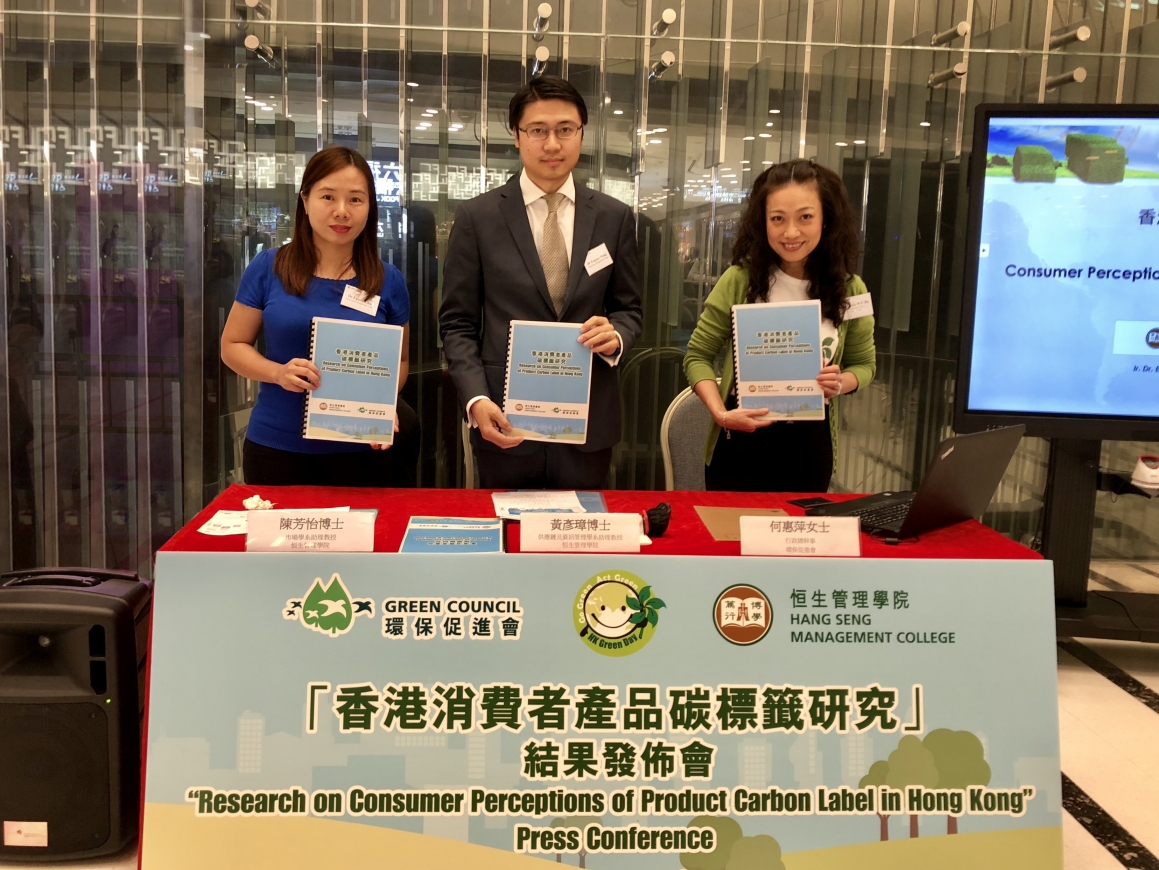HSMC Announced on World Environment Day Results of Interdisciplinary Research on Product Carbon Footprint Label and Consumer Carbon Index in Hong Kong
HSMC announced a report on a research project titled “Consumer carbon label: Development of supply chain product carbon footprint and consumer carbon index for beverage merchandise” on 5 Jun 2018, the World Environment Day. One of the research activities was a large-scale consumer survey conducted in collaboration with the Green Council early this year to explore consumer perceptions of product carbon footprint and carbon labelling. The questionnaire consisted of 79 questions and altogether 1,000 persons responded to the survey. The study aimed to explore consumers’ awareness, readiness and behavioural intention towards carbon reduction. The level of social influence was also measured. A Consumer Carbon Index was compiled based on the above dimensions.
Survey results showed that about 60% of the respondents were not aware of carbon emissions of products, but a majority of respondents believed that their responsibilities towards climate change were lower than manufacturers and the government. Nearly 85% of the respondents reported that they were willing to pay 5% or more for purchasing low-carbon beverages in order to cut carbon emission by half.
The consumer survey was conducted by the HSMC research team comprising Dr Eugene Wong and Dr Stuart So from the Department of Supply Chain and Information Management, and Dr Fanny Chan from the Department of Marketing. They worked hand in hand with Ms Linda Ho from the Green Council.
Another empirical study conducted by the research team revealed that the amount of carbon dioxide emitted during the packaging and retail processes was the highest in the entire product life-cycle. Based on the survey findings, the research team put forward four important recommendations:
(1) Promotion, Policies and Legislation – the government may consider strengthening the promotion and education of carbon reduction and introduce relevant policies and measures in the future;
(2) Diversified Education and Promotion Programmes – the programmes may include three components: basic knowledge, social values and norms, and environmental literacy and sustainable consumptions to cultivate more environmental friendly behaviours and lifestyles;
(3) Simple Design of Product Carbon Labelling – the survey results suggested that a simple and easy-to-understand carbon label design is likely to be more acceptable and efficient; and
(4) Expand Beverage Container Recovery and Recycling – In a carbon mapping exercise, it was found that carbon emission during the packaging stage was very high while consumers realised that post consumption disposal contributed highly to carbon emission. It is suggested that manufacturers should consider adopting low carbon-emission materials for beverage package. The government may consider speeding up the process of expanding the scope of beverage container recovery, for instance, to include other packaging materials such as plastic bottles and paper packaging, in addition to glass bottles.
This work was supported by a grant from the Research Grants Council of the Hong Kong Special Administrative Region, China (UGC/FDS14/B16/16)

(From left) Dr Fanny Chan, Dr Eugene Wong and Ms Linda Ho

